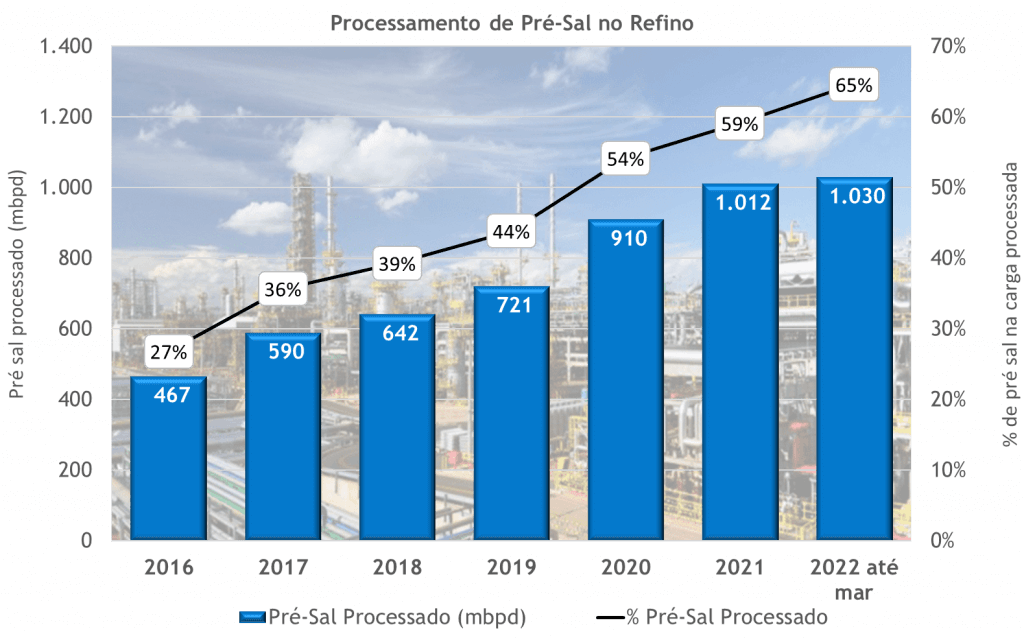Free translation and writing by : Franyi Sarmiento, Ph.D., Inspenet, May 18, 2022
The oils have a high yield from derivatives with high added value and have a low sulfur content, which helps make Petrobras more competitive in terms of emission reduction.
In the 1st quarter of 2022, on average, 65% of the oil load processed in the company’s refineries originated in the Brazilian pre-salt, a quarterly record. In February 2022, the monthly record of processed volume was reached with 66%. In 2016, for example, only 27% of the cargo processed in the company’s refineries came from it.
The pre-salt oil processing capacity is being expanded through investments in the refining park. These investments bring greater operational and logistical flexibility to Petrobras and allow it to make better use of these oils, including in the domestic market, highlighted the executive manager of Petrobras Refining, Elza Kallas.

The pre-salt oil has a low sulfur content, which favors the production of higher quality derivatives, such as Diesel S-10 and Bunker, and contributes to making Petrobras more competitive in terms of reducing emissions. These oils also have a high yield of medium derivatives, that is, from the same volume of pre-salt oil, compared to post-salt oil, it is possible to produce more QAv (Aviation Kerosene) and Diesel fuels, with higher added value.
The increased share of these oils among those processed in Petrobras refineries stems from the growth in pre-salt production and the appreciation of derivatives produced from it. The decision between refining more oil or exporting, and which oil to use in the company’s units, considers various variables, such as the availability of assets, the characteristics of each oil, its price and the price of derivatives in the national and international markets. . The choice is made seeking to combine the best economic result with service to Petrobras’ clients.
Source and graphic : https://www.agenciapetrobras.com.br/Materia/ExibirMateria?p_materia=984321


